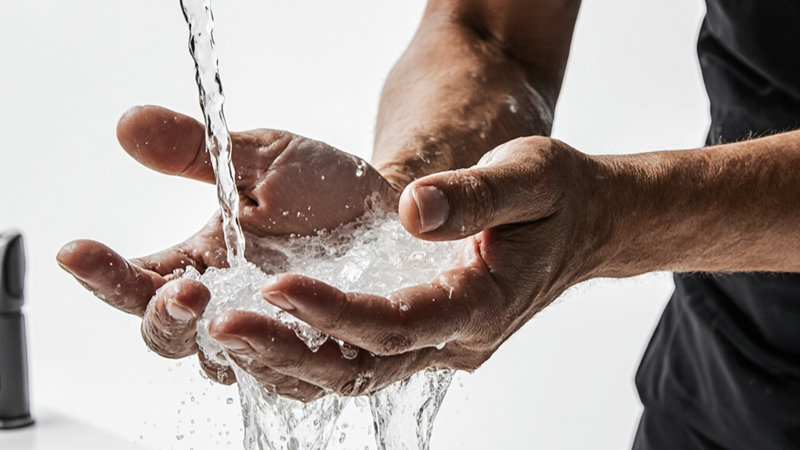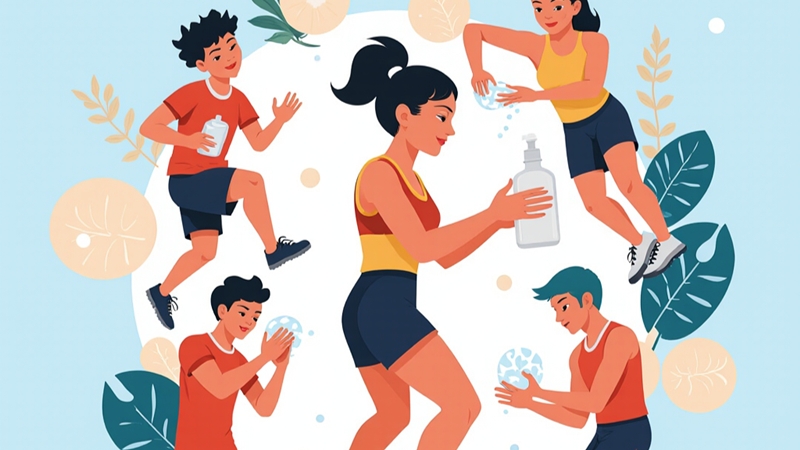Uncategorized
The Most Effective Hand Hygiene Practices for Athletes
Introduction
When you are an athlete, your hands do much more than help you play your sport. They grip the ball, hold the bat, swing the racket, tie your laces, shake hands with teammates, and sometimes even touch your face. Because of this, your hands can easily pick up dirt, sweat, and germs during training or competition. Without proper hand hygiene, you could get sick, spread illness to others, or even suffer from skin infections that can keep you out of the game.
In this guide, we will go through the most effective hand hygiene practices every athlete should follow to stay healthy, improve performance, and protect teammates.
Why Hand Hygiene is Important for Every Athlete
Whether you play football, basketball, tennis, swimming, or any other sport, your hands are constantly in contact with shared equipment and surfaces. These could include:
- Balls
- Gym machines
- Locker room benches
- Water bottle handles
- Shared towels
- Door handles
Sweaty hands combined with small cuts or scratches can make it easier for bacteria and viruses to enter your body. For an athlete, even a mild illness like a cold can lower energy levels and affect performance. In more serious cases, infections like staph can keep you out of training for weeks.
By following good hand hygiene, you protect yourself and help create a healthier training environment for your whole team.
Wash Your Hands Regularly and Properly
The simplest and most important step for any athlete is to wash your hands regularly. But washing them the right way matters just as much.
Steps for proper handwashing:
- Wet your hands with clean, running water (warm or cold).
- Apply enough soap to cover your hands completely.
- Rub your hands together, making sure to scrub between fingers, under nails, and around the wrists.
- Keep scrubbing for at least 20 seconds (you can hum a short song to keep time).
- Rinse well under clean water.
- Dry with a clean towel or let them air dry.
When to wash your hands as an athlete:
- Before and after training
- Before eating
- After using the restroom
- After touching shared equipment
- After coughing, sneezing, or blowing your nose
- After touching wounds or bandages
Use Hand Sanitizer When Soap and Water Aren’t Available
Sometimes, as an athlete, you won’t have easy access to a sink, especially during outdoor events, matches, or travel. In these cases, carry a small bottle of alcohol-based hand sanitizer (with at least 60% alcohol).
Tips for using hand sanitizer effectively:
- Apply enough to cover your entire hand.
- Rub your hands together until they feel dry (around 20 seconds).
- Remember that hand sanitizer doesn’t remove dirt, so if your hands are visibly dirty, you still need to wash them with soap and water when possible.

Keep Your Nails Short and Clean
Long nails can trap dirt and germs more easily. For an athlete, short nails are not only safer but also more hygienic. Use a nail brush or the tip of a soapy finger to clean under your nails when washing your hands. This is especially important for sports that involve gripping, like weightlifting, climbing, or wrestling.
Avoid Touching Your Face During Training
One habit many athletes have without realizing is touching their face, especially wiping sweat from the forehead, eyes, or mouth. The problem is that this can transfer germs from your hands to areas where they can easily enter your body.
Tips to break this habit:
- Use a clean towel to wipe sweat instead of your hands.
- Wear a sweatband during training.
- Keep your hands busy holding equipment or adjusting your gear to avoid touching your face.
Clean and Disinfect Sports Equipment
As an athlete, your hygiene is not just about your body—it also includes the tools you use for your sport.
Shared or personal sports equipment can carry germs for hours or even days.
How to keep equipment clean:
- Wipe down gym machines before and after use with disinfectant wipes.
- Clean balls, bats, or rackets regularly with a disinfectant spray.
- Wash reusable water bottles after every use.
- Avoid sharing towels or personal gear.
Care for Cuts and Scratches
Small wounds are common for athletes, but they can be an entry point for bacteria.
If you have a cut or scratch:
- Wash your hands before touching the wound.
- Clean the wound with mild soap and water.
- Apply an antiseptic and cover with a clean bandage.
- Replace bandages regularly, especially if they get wet during training.
Be Consistent with Hand Hygiene When Traveling for Competitions
Traveling exposes athletes to new environments, different climates, and more people. Germs spread more easily when you are on the move.
If you are an athlete traveling for a tournament or game:
- Carry travel-sized hand sanitizer.
- Wash your hands before meals, even if you just ate a snack.
- Avoid touching surfaces unnecessarily in public areas.
- Keep disinfectant wipes to clean airplane or bus tray tables and armrests.
Encourage Team Hygiene Habits
If you are part of a team, good hand hygiene is a group effort. Encourage teammates to follow the same rules. A single sick player can spread illness quickly in a close-contact sport.
Ideas for promoting hygiene in your team:
- Have hand sanitizer stations in the locker room.
- Make handwashing part of the pre-game and post-game routine.
- Remind teammates to cover their mouths when coughing or sneezing.
- Share information about the importance of hand hygiene.
Conclusion
For an athlete, staying in top condition means more than just training hard—it means taking care of your health in every way possible. Good hand hygiene is one of the easiest, cheapest, and most effective ways to prevent illness and stay in the game.
By washing your hands properly, using sanitizer when needed, keeping nails clean, avoiding face-touching, and disinfecting equipment, you protect not only yourself but also your teammates. Remember: healthy hands help you perform at your best.
You can easily find more of our blogs on Sanixway blog section!


